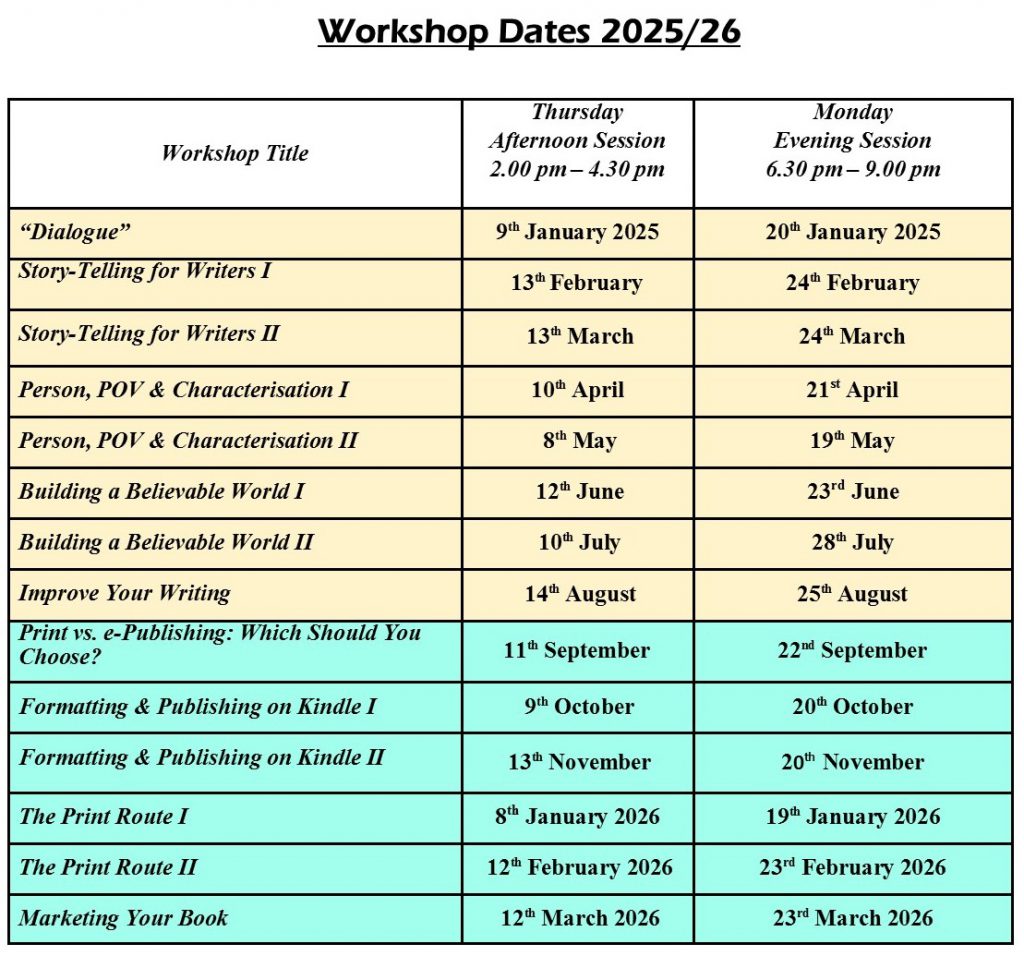Workshops
OK, it’s taken me a while to catch up with the 2025 workshop schedule – sorry!
Helen Claire Gould was a professional trainer and evening class teacher in a previous incarnation, and has qualifications in teaching and writing training courses.
*
If you live in America, the timings will obviously be a bit different! Here’s a little table that should give you a heads-up about start and finish times:

Here’s another table, which gives a complete list of all the workshops in date order.

Need more information?
Here’s the brochure for my writing workshops:
If after working your way through all of this, you find yourself keen to attend but unable to make a particular date or a day and time, please get in touch! I still offer private lessons and group sessions, at times of your choosing. Contact details are below and in the updated brochures for 2025.
To book a place
To book a place, please first let me (Helen) know you’re coming. There is a limit on places for each course of 12 participants, partly because we use small group work to build confidence, and 12 divides into groups of 2, 3 or 6 participants, or into 6 pairs, and partly because limiting the numbers makes me more available to spend time with everyone. To let me know you’re coming, either call me on 07771-884667 or e-mail me at helen.gould7@ntlworld.com. And if you have any queries or need further information please also get in touch.
Once I know you’re coming, I’ll add your name and e-mail to the list, and issue an invoice. Once your payment has gone through I will send out the Zoom invitation (usually in the week before the workshop), and, a couple of days before the workshop, the handouts and materials. You will need to print these out, as once you’re in the break-out rooms you won’t be able to see the presentation, and you’ll need the information in the handouts to complete the assignments.
.
Out Now
UPCOMING EVENTS
WORKSHOPS
-
Latest Blog
Starmap Quadrants

